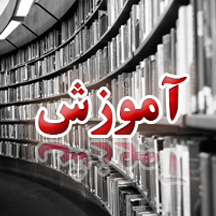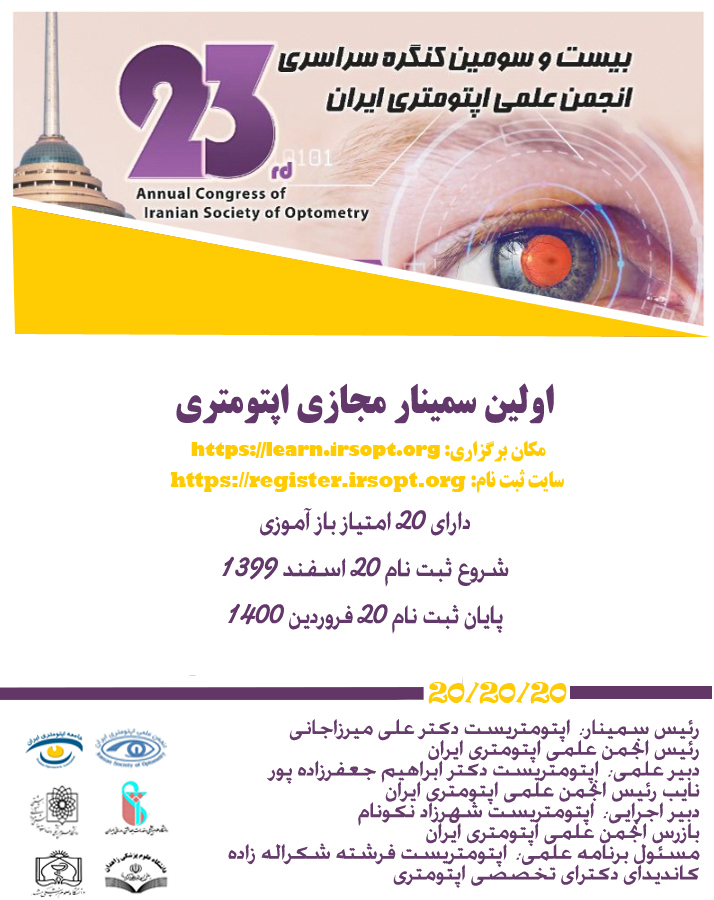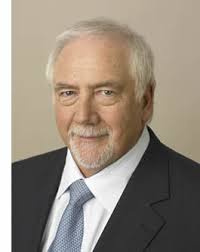
The Media Focus in the West Is Rarely on Islam and Its Teachings

A Canadian political scientist tells Fars News Agency that Muslims have a legal right to be offended by the Western media’s disrespectful depiction of their holy prophet, just as the Christians can be upset about the sacrilege of their religious sites.
According to Prof. Raymond Taras, the media in the West narrowly put their emphasis on what they allege to be “Islamic extremism” and rarely give coverage to the genuine teachings and philosophy of Islam.
Taras also believes that the Muslims are subject to persecution and religious profiling in the West: “All citizens are today suffering a loss in their civil liberties as the process of securitization of social life widens and deepens. We are all under surveillance but it is Muslims who are being profiled and subjected to more numerous police searches, security checks, phone tapping, mosque surveillance, networks of informers, and so on.”
Prof. Taras says that Islam is now serving as an artificial enemy for the West and those who are trying to weaken and suppress democracy in different ways. “The cliché that the West needed a new enemy after the cold war ended is not without truth,” he said. “Constructing a fanatical adversary serves the interests of those political groups and ideologies which want to centralize power, securitize more spheres of social life, stamp out opposition, restrict civil liberties - in these different ways weakening democracy.”
Raymond Taras is a political scientist whose main interests include multiculturalism, xenophobia, ethnic conflicts and immigration. Born in Montreal, he worked as a Leverhulme Visiting Professor at the University of Sussex in the academic year 2014-15. He has also been a Fulbright Distinguished Chair in European Studies at the University of Warsaw in 2013-14 and Willy Brandt Guest Professor at Malmö University in 2010-11. Prof. Taras has extensively researched Islamophobia in the West and discrimination against the religious and ethnic minorities.
In an interview with FNA, he discussed the rise of Islamophobic sentiments in the West and its underpinning causes. The following is the text of the interview.
Q: On the debate regarding multiculturalism, there are some scholars and thinkers who expressly opine that Islam poses a threat to the cultural plurality of the West, and that Muslim minorities play a destructive role in the societies where they live. According to a 2006 survey by the YouGov, 53% of the Britons fear the “Muslim problem” and think that Islam is a serious challenge to the security of the Western world. What is the root of this unusual anxiety about the role of Muslims in the Western societies? 18% of the British people, according to the same survey, think that Muslims don’t feel any sense of loyalty to their country and are ready to condone or carry out acts of terrorism. Is it really so?
A: Attitudinal surveys on attitudes towards Muslims have become a cottage industry. My head spins with the many different results these surveys report. The Global Studies project, a world-wide survey conducted regularly by the Pew Trust in Washington, DC, found that anti-Muslim attitudes in Western countries peaked about a decade ago and have declined somewhat, though examining results on a country-by-country basis is the most informative way to proceed. Cross-national European scholarly research projects that asked Muslims themselves whether they have experienced discrimination in host countries – EU-MIDIS, funded by the European Union and available online, and whether they feel the receiving society considers them loyal and identifies them as full members of their society (EURISLAM) generally reveal significant divides in opinions between ‘nationals’ and Muslims of immigrant background. If, as you suggest, UK respondents feel Muslims - they are thinking primarily of Pakistanis and Bangladeshis - are not always loyal to Britain, then Muslim respondents have in turn identified Britain as the country in the EU which is most dubious whether Muslims belong to this society.
We can also consult time-series national surveys, for example ALLBUS in Germany, which reveal for example that German respondents are more comfortable with having neighbors, work colleagues, and sons-in-law who are Christian, not Muslim. There are therefore many layers to attitudinal research but generally you are correct in inferring that there is heightened anxiety about Muslims living in European countries. This anxiety may be directed primarily at recent immigrants as well as young Muslims who are descendants of earlier immigrants. I do not think it is completely accurate to assert that native Europeans distrust Muslims across the board, only in specific cases. Surveys suggest they are selective in identifying which Muslims they are anxious about. The main Muslim communities that Europeans are familiar with and about whom they are asked for opinions are those from North Africa, South Asia, Turkey, and the Middle East. I have found very little research into Iranian migration into Europe and the attitudes they evoke. It is as if Iranian immigrants fly below radar.
Q: In the recent years, many attempts have been made to scorn Prophet Mohammad (PBUH) and his family, including the production of the profane movie trailer “Innocence of Muslims” and the seditious movie “Fitna” by the Dutch parliament member Geert Wilders. Prior to that, several European newspapers and magazines released cartoons denigrating Prophet Mohammad (PBUH), such as the Danish paper Jyllands-Posten and the French Charlie Hebdo. A Florida-based Evangelical pastor named Terry Jones also burnt copies of the Holy Quran in 2010, 2012 and 2013. These are simply a few instances of attacks against the sacred beliefs of 1.5 billion Muslims worldwide. Do you consider these actions efforts to gain publicity, or concerted efforts to disdain the Muslims? In either case, what do you think are the reasons for such gambits?
A: Freedom of speech, including freedom to caricaturize the Prophet Muhammad and his followers, has to be weighed against inciting racial and religious hatred. Just as Christians in non-Muslim countries have the moral and oftentimes legal right to be upset by and protest against profanation of their religious sites, whether by barebreasted FEMEN activists in Cologne Cathedral or Pussy Riot’s vulgarity in a Russian Orthodox cathedral, so devout Muslims have every reason to be offended by insults to the Prophet Mohammed.
Freedom of speech anyway may be an example of what German-American philosopher Herbert Marcuse called in the 1960s a form of ‘repressive tolerance.’ Exercising freedom of speech may give individuals a feeling of liberty and autonomy, but it does nothing to help immigrants and non-immigrants who are unemployed or working hard for outrageously low wages or whose children have no opportunities and no future. There are millions of people in these situations in such EU member states as Greece, Spain, France, and in countries which were part of EU enlargement a decade ago.
Sarcasm and satire, including religious variations of it, do nothing for the disadvantaged. If we are to talk about hate speech and hate cartoons, then Turkish President Erdogan has argued, not unpersuasively, that whereas many European states have laws against anti-Semitic speech, none has a law against anti-Islamic speech. But let me take a different perspective for a moment. A recently-completed Iranian film focusing on the first twelve years in the life of the Prophet is likely to be received in the West as too romanticized, too sanitized an image of the prophet. A Western audience expects tension between good and evil, and film goers may find reverent and pious treatments of a religious subject unconvincing and unimaginative. Films from half a century ago about the life of Jesus Christ or for that matter of Henry VIII or the Morom Joseph Smith were generally sycophantic and therefore uninteresting.
Q: Quran has always been a source of inspiration for the Muslims. There’s no single verse in Quran which calls on Muslims to take action against the other believers in violence, kidnap, rape and murder innocent people and infringe upon the rights of other people. Quran constantly demands the Muslims to take care of the poor and needy, the wayfarer, the orphans and being benevolent to one’s family and neighbors and behave the followers of other religions humanely. But this is not what the Western citizens are told about Islam and Quran. Who is responsible for promoting these underreported teachings of Quran to the cynical Westerners who think it’s Quran that incites violence and aggression?
A: If only the Quran or the Hadith were a topic of serious debate in the West! Other than in narrow intellectual circles, they are not. In my short teaching units in university courses on Islamic literature I introduce students to pre-Islamic love poetry. Then we read and listen to recitations of the sura Maryam. Neither my students nor I understand Arabic but we learn to appreciate the aesthetic beauty of this sura. The poetry of the loving environment in which Maryam gives birth forms the antithesis of the message of jihad that some - though I don’t really think that many - Western citizens associate the Quran with. The media focus in the West is on alleged Islamist extremists, very rarely on Islam and its teachings. In my classes I also highlight the diversity of interpretations of the Quran in the Islamic world. So we listen to a reading of this sura from a mosque in Riyadh and contrast it to the noisier reading and response of the faithul in al-Azhar in Cairo. As we do not know Arabic [so] we cannot conduct a textual or semiotic analysis of the sura. But we can unmistakably distinguish which mosque has a passionate and engaged faithful.
Q: Following the deadly shooting spree at the office of Charlie Hebdo magazine in Paris, which was automatically blamed on the Muslims only a few hours after the tragic event – while there were no proofs to demonstrate that the perpetrators were Muslims, a wave of assaults began to be unleashed on the Islamic centers, mosques and even houses of Muslim citizens in France and a handful of other European countries. There was nobody to condemn these attacks, while they were similarly heinous and despicable just as the shooting rampage on the Charlie Hebdo office was, because it was simply driven by religious intolerance and prejudice against the Muslims. What’s your take on that?
A: I remember an academic colleague of mine in the United States who was interviewed on television an hour after the Oklahoma City bombing took place in 1995. He said flatly that Muslims, not White supremacists, had organized this terrorist attack on a federal building which killed 168 people including many children. I have been thinking about writing a book on what I would call ‘Pavlovian society.’ Like Pavlov’s dogs in the psychological experiment conducted by Russian physiologist Ivan Pavlov, our modern society has become susceptible to classical conditioning and behavior modification as the state finds the need for control more urgent. We are exposed to many master signifiers – subtle symbols and metaphors for what should be relevant to our lives and how we should react. Surveillance methods are today extremely sophisticated. While appearing to be concessions to individual autonomy, many digital and electronic devices chain us to increased securitization regimes. For example, if its location service is not switched off, our mobile phone, tablet, and laptop can place our location to within one metre of where we are. Who we are communicating with on it is even easier to discover. Whether in the West, the Russian world (russkiymir), or an Islamic country, societies react largely according to the cues given them by elites.
Most people have not paid attention to the cover of the Charlie Hebdo magazine which was published on the day its editorial team was massacred. It featured a cartoon of French novelist Michel Houellebecq who has faced charges in the past of inciting religious hatred through his anti-Muslim writing. His new book, Soumission – “Submission,” or dhimmitude as those who believe the Christian world is submitting to Islam would call it,was published that same day. It imagines a France in 2022 which has elected a Muslim Brotherhood candidate as president. The French left and the French right agree to support the moderate Muslim leader rather than allow the country to be governed by the Front National. The supposedly Islamophobic Houellebecq takes great care in this novel to describe the conflict not between Christians and Muslims but between moderate Muslims and Saudi Salafists. Saudis have acquired the Sorbonne, renamed it the Islamic University of Paris, removed all female professors from their posts, and encouraged polygamy among remaining male professors. But the Muslim Brotherhood president is cautious and keen to reflect majority public opinion.
Paradoxically, this controversial author tells a story about the intolerance of a specific group of followers of Islam. Perhaps some French people do not appreciate this nuanced approach to Islam taken by a reputed Islamophobe. But French citizens are aware of differences between, for example, the more liberal cultural values of Maghrebis from North Africa and, on the other hand, the authoritarian patriarchal practices of immigrants from the Sahel. On the other hand, they may not follow the differences between Sunni and Shia Muslims because they cannot frame them as a straightforward conflict between liberal and illiberal values.
In other words, I have the impression that to a certain extent, Europeans do recognize doctrinal and cultural differences within Islam more than they are given credit for. A danger that follows from this is that they might construct the image of ‘the good Muslim’ or ‘our Muslim’ as opposed to ‘bad foreign Muslims’ depending on how similar they are to and assimilated they may be into Western society.
I am not sure, then, that there is widespread prejudice against Muslims tout court. Those Muslims who are difficult to ‘orientalize’ because they give the impression of being worldly, even secular are likely to be much less a target of discriminatory practices than devout Muslims publicly reciting prayers five times daily or wearing non-Western dress.
Q: There are political parties, media organizations, academic institutions and advocacy groups that upheld the view that the “Islamization” of Europe is a serious threat; however, what I want to propose is that it’s the growing xenophobic and Islamophobic sentiments across the mainland Europe that threatens the pillars of democracy and equality in the continent. Even German Chancellor Angela Merkel has distanced herself from the anti-Islamic demonstration of the ultra-right-wing PEGIDA, which she said fuels racism in the country. Do you agree that Islamophobia, as an extreme form of xenophobia and racism, undermines peace and social cohesion in the West more and creates wide gaps that cannot be filled so easily?
A: Extreme Islamophobic movements are quick to identify cases of soumission and dhimmitude of Christians to Islam. Germany’s PEGIDA leaders, like their counterparts in France’s Front National, Sweden Democrats, and the United Kingdom Independence Party (UKIP), say that they do not have a quarrel with Islam per se. The stakes are particularly high in Germany since history teaches us what happened when German citizens voted for a racist party in the 1930s. I believe European elites are part of the problem and not the solution to the rise of xenophobic parties. They have largely ignored European public opinion whether it involves appointing an EU president, opting for austerity rather than Keysnian state-led economic recovery, or being permissive about immigration - even though they make no effort to increase the state’s capacity to give newly arrived immigrants real economic opportunities.
Growing populist protest movements in Greece and Spain, and increasing electoral support for UKIP in Britain and Sweden Democrats in that country, reflect anti-elite sentiments. Elites have every reason to stigmatize these parties as racist or xenophobic or Islamophobic so as to turn the attention away from their own irresponsiveness. If there are wide gaps at the heart of Europe, as the Economist Intelligence Unit reported this January, it is more between elites and citizens than between religious denominations
I agree that Muslim practices and values and identity are sources for Islamophobic attitudes among sections of European society. At the same time, I propose that we see Islamophobia not exclusively as an unwarranted attack on the faith of millions but also as a barometer of Europeans’ discontent with self-serving elites. So Chancellor Merkel, primus inter pares within the European elite, may publicly condemn PEGIDA marchers and receive praise for it. But it would be good also to hear the voices of non-European, including Muslim, leaders who have been speaking out more passionately and consistently against Islamophobia for many years. Iranian President Hassan Rouhani’s speech at the United Nations in 2013 condemning the international politics of fear should be much better known.
Q: The September 11, 2001 attacks, which were portrayed as an assault by “Muslim terrorists” on America’s democratic values, laid the groundwork for the demonization and dehumanization of Muslims across the world for more than one decade, because it was casually claimed that they were the Muslims who attacked the World Trade Center towers and the Pentagon. Is the Paris shooting incident going to be used as a new pretext for ostracizing the Muslims and limiting their freedoms and civil liberties in the Western societies?
A: All citizens are today suffering a loss in their civil liberties as the process of securitization of social life widens and deepens. We are all under surveillance but it is Muslims who are being profiled and subjected to more numerous police searches, security checks, phone tapping, mosque surveillance, networks of informers, and so on. After the terrorism of 9/11, a question was posed in the US whether this event would prove to be a big historical event but with few consequences, or a minor event with enormous consequences. I cannot fully answer this question, but I believe we all agree that the consequences of 9/11 have been enormous and protracted. Western countries continue to deploy military force around the world but especially in Muslim-majority states to eliminate what they suspect are terrorist organizations.
The war on terrorism has in practice targeted Muslims first. As has been said many times, the ‘blowback’ of this war is massive recruitment to the Islamist cause. For this reason we should give credit to President Obama for insisting at the beginning of February that the fight against terrorism is not a war on Islam or a religious war. Taken purely at the level of rhetoric, it is reassuring that he went on record as stating that the US should align itself with the overwhelming majority of Muslims who reject radical ideology and the terror tactics of ISIS and al Qaeda.
But in reality we all have reason to fear that the events in Paris on 1/11 will be followed by another attack. There seems to be a ‘tit-for-tat’ in this cycle of reciprocal violence in which domestic and international terrorism cannot be separated from each other.
Q: Muslims have never been harmful members in the societies where they live as minorities. There are many Muslim physicians, university professors, entrepreneurs, social workers, public servants and even government officials in the United States and Europe who are contributing to the growth and progress of their countries of residence. But it seems like this fact is being largely overlooked. Do you agree?
A: This is an important point you raise. Instead of the many social surveys carried out on attitudes towards Muslims, a more original sociological question might be to inquire into socio-occupational mobility of Muslims of different ethnic backgrounds in specific European countries - or in the US or Canada for that matter. From such data we would be able to answer with more confidence whether Muslims face obstacles, including prejudice, in employment opportunities. What are the distinctive attributes of those Muslims who are able to overcome prejudice? How much do the levels of educational attainment, a particular class background or occupation, gender, age - being young, demonstrating fluency in a European language, originating in a specific part of the world, and other factors count in facilitating economic mobility?
Identifying role models of successful people and publicizing them among Muslims and non Muslims alike could do a lot of good, and certainly no harm, in highlighting that a Western society is really an open society.
Q: Who benefits from the depiction of Muslims as fanatic and primitive people, who are unfamiliar with modern civilization and simply kill and terrorize at will? Whose interests does it serve to portray Muslims as terrorists whose rigid religious ideology doesn’t allow them to love the people of other faiths?
A: Conflicts are usually viewed as a boom for business interests. There has been a dramatic increase in spending on the military, weaponry, special security forces, surveillance, cyber counter-warfare and so on since 9/11. There have been financial consequences following 9/11 that have affected all of us; the single most visible trend is the expanding inequality between rich and poor.
The cliché that the West needed a new enemy after the cold war ended is not without truth. Constructing a fanatical adversary serves the interests of those political groups and ideologies which want to centralize power, securitize more spheres of social life, stamp out opposition, restrict civil liberties - in these different ways weakening democracy.
Secularism, which I haven’t discussed in any detail so far, does not create a level playing ground for all religious organizations so it cannot be a solution. Despite the liberal rhetoric of many politicians, migration, multiculturalism, and diversity are not automatic answers either. If not managed properly through visionary public policies, they often create divisions and rivalries in the presence of an indifferent state.
In sum I do believe there is far more sympathy within Western societies for the disadvantaged and the downtrodden among whom are millions of Muslims than we are made to believe. There is more trust in the established Muslim communities in the West than media reports reveal. Grassroots solidarity often crosses ethnic and religious divides. As folk singer Bob Dylan wrote half a century ago, the masters of war provoke and profit from conflict and hate. These masters of war do not believe in any religion even if they may refer to a religion to legitimate their political and economic interests.
Interview by Kourosh Ziabari
تاریخ درج : شنبه, ۱۳۹۳/۱۲/۰۹ | نویسنده : مدیر | تعداد بازدید : 17442289







